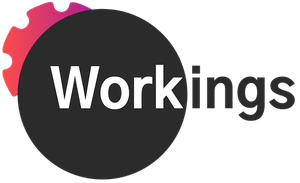We do a lot of hiring and letting folks go, job transitions are inherently stressful for people, and we want those transitions to be as painless and positive as possible for our consultants. Because the end of a role (especially one you really love!) is always a hard thing, even when you know it’s coming eventually, we’re constantly on the look-out for ways to make it all feel a little bit more manageable.
I’ve written about the short-term nature of most Steyer jobs in a previous Workings, asking if short-term jobs could still be good jobs. My take, six months later: yes, it’s possible—with really good communication, and really good expectations-setting. Everyone needs to know what they’re signing up for; that transparency seems to help a lot with those transitions. (It also increases the odds that we get to work with that same talent some day in the future, when their needs, Steyer’s needs, and our clients’ needs intersect once again!)
Our late-2024 prediction for mid-2025 in that Workings was correct: a huge portion of our revenue that used to come from higher-paying, long-term, full-time contracting work has indeed been replaced by content services via project work (which is largely short-term). The longer-term roles we do still have are just as tied to ongoing budget approvals as the shorter-term roles.
As one more step in the direction of transparency and clarity, we will be more explicitly referencing client budget schedules in our offer letters going forward. We’ll state upfront, in writing, exactly how much visibility we have into client budget, and tie the end of the consultant contract to that visibility. Even if the role has “the potential to be ongoing” (a phrase so often in contract job listings!), we usually know exactly when the budget will need to be re-approved by our clients, and we’re going to share that with consultants. Our hope is that this small change in how we communicate what we know (and what we just can’t possibly know) to hires will help us set super-clear expectations. It also gives folks a chance, at least annually, to re-affirm that the compensation on offer still works for them.
I’d like to hear, if you’re willing to share, what some of your best onboarding experiences have been at new jobs—especially for short-term roles. What made it feel positive? I’m at kreilly@steyer.net and I’d love to hear from you!
Thanks,
Katelyn
Photo by Jörg Angeli on Unsplash



